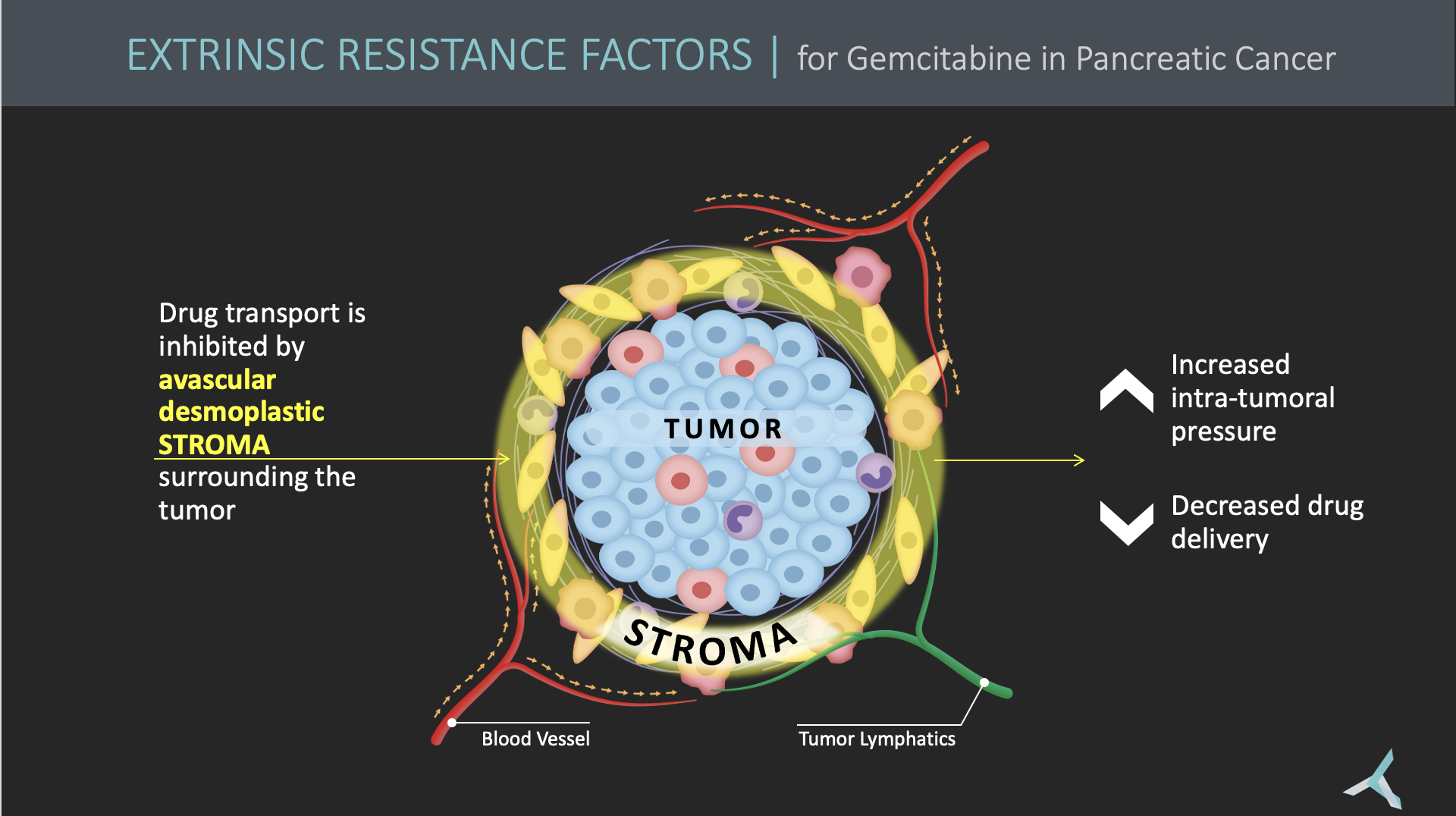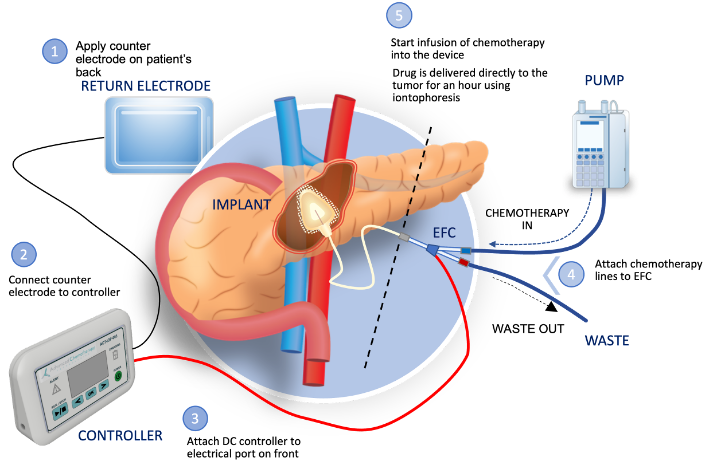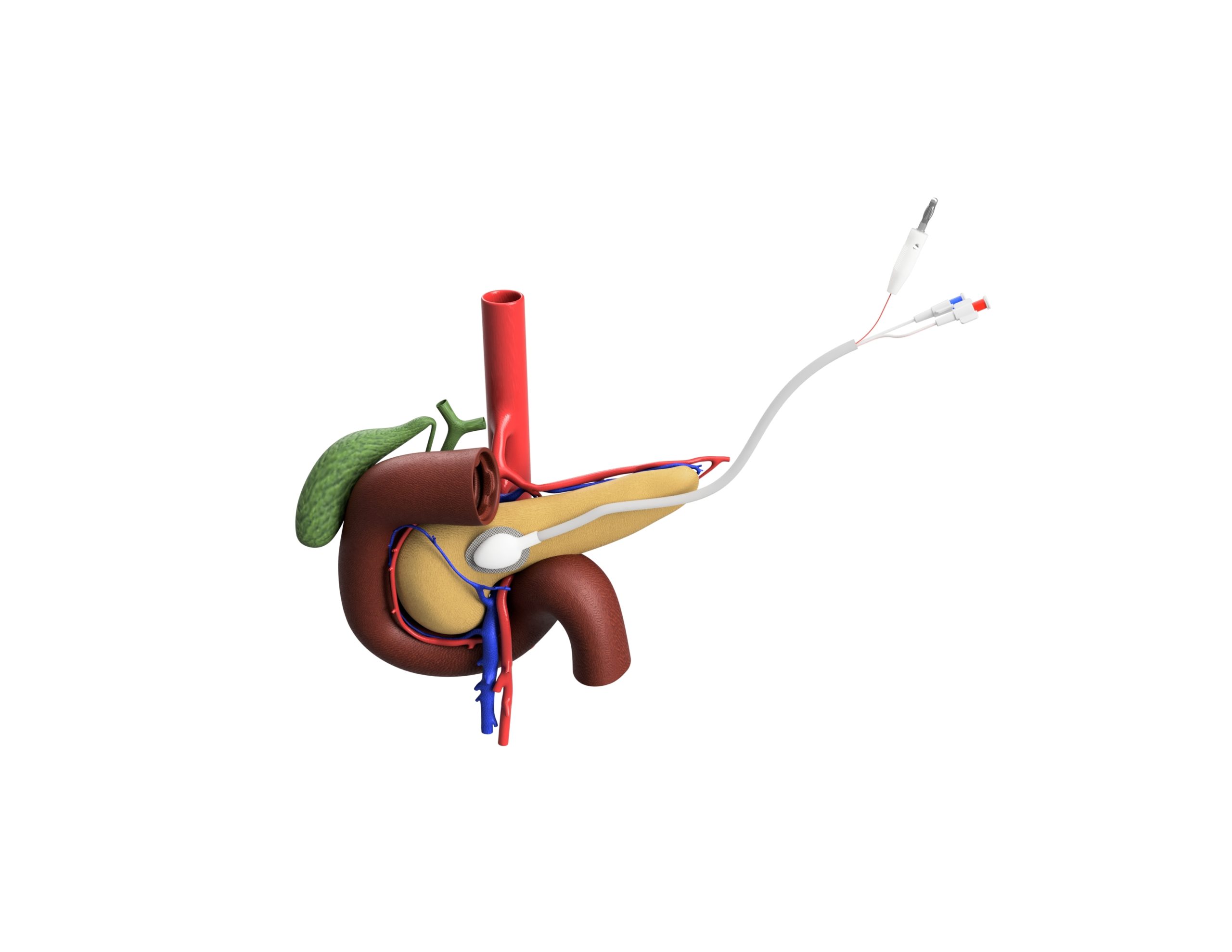Successful completion of development of a precision therapeutic system designed to safely achieve high concentration…

Simulation Optimizes a Chemotherapy Implant to Treat Pancreatic Cancer
There are few illnesses as crafty as pancreatic cancer. It spreads like weeds and resists chemotherapy. Pancreatic cancer is often asymptomatic, has a low survival rate and is often misdiagnosed as diabetes. And, this violent killer is almost always inoperable. The pancreatic tumor’s resistance to chemotherapy comes from a shield of supporting connective tissue, or stroma, which it builds around itself.
Current treatments attempt to overcome this defense by increasing the dosage of intravenously administered chemotherapy. Sadly, this rarely works, and the high dosage is exceptionally hard on patients. Nonetheless, doctors need a way to shrink these tumors so that they can surgically remove them without risking the numerous organs and vasculature around the pancreas.
“We say if you can’t get the drugs to the tumor from the blood, why not get it through the stroma directly?” asks William Daunch, CTO at Advanced Chemotherapy Technologies (ACT), an Ansys Startup Program member. “We are developing a medical device that implants directly onto the pancreas. It passes drugs through the organ, across the stroma to the tumor using iontophoresis.”
By treating the tumor directly, doctors can theoretically shrink the tumor to an operable size with a smaller dose of chemotherapy. This should significantly reduce the effects of the drugs on the rest of the patient’s body.



